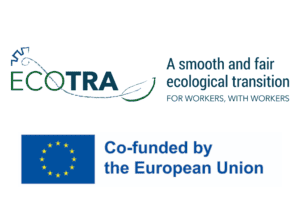2023-03-03 06:11
CESI’s statutory Expert Commission ‘Public Administrations’ has spoken up again for improved working conditions in public administrations to make them more performing.
At its first meeting of the year, which took place on earlier this week on February 28, CESI Secretary General Klaus Heeger said: “Many Member States have made progress in the delivery, transparency, digitalisation, trust and accountability of their public services. Nevertheless, more and urgent efforts are needed to improve working conditions. Without adequate working conditions for staff, the public services that they are meant to deliver cannot be at their maximum.”
Expert Commission members – all public sector union representatives from across Europe – reported about wide differences in the quality of public services and working conditions among the Member States. Varying budgetary resources, costs, efficiency, levels of digitalisation, trust and effectiveness continue to be main reasons for this, they stressed.
The observations confirm the findings of the European Commission’s regular assessments of the performance of public administration in the Member States. They have concluded that all countries have progressed in regulatory governance but that the quality of stakeholder consultations, regulatory impact assessments and ex-post evaluations of legislation still need improvement. They also revealed:
- Most Member States have adopted digital technologies to improve public service delivery and streamline administrative processes. However, more efforts should be pursued to step up the access of all citizens to the new technologies.
- Public administrations are becoming essential in the delivery of socially fair green-digital transitions and this also means that the staff needs to be equipped with adjusted and new skills to design and deliver policies and practices. At the same time, less that half of EU countries are investing sufficiently in the upskilling and reskilling of their public sector staff.
- The public sector workforce is aging rapidly and has not been been acquiring sufficient new talent. This comes at a cost of lost institutional memory and decreased working conditions.
This is why the Expert Commission spoke up in favour of:
- a full implementation of a new agreement on the rights of workers in central government administrations in the digital era, to ensure that digitalisation can fully and fairly evolve for citizens and workers in public administrations
- life-long-leaning and training-on-the-job as new routines in all public administrations
- a commitment to necessary investments to improve the working conditions for a better statt attraction and retention.
According to CESI Secretary General Klaus Heeger, there is no time to spare: “The Covid pandemic was the most recent reminder of what happens if public services are not equipped to face crises. We should all be aware that crises will come again. We just do not know when and how exactly. This is why public administrations across the board must be ready, must be resilient. This will require further investments in their resources, including its staff.”





